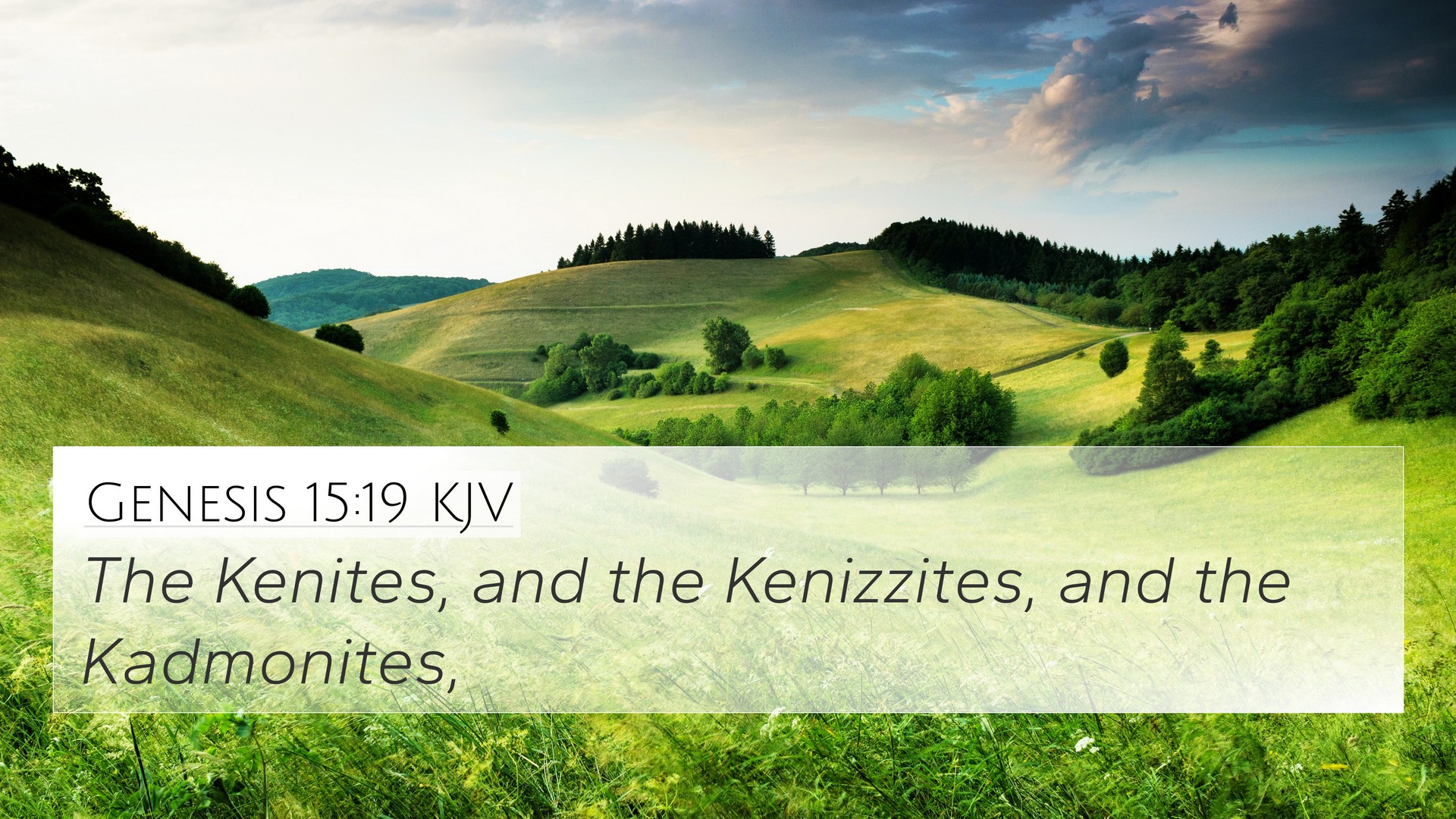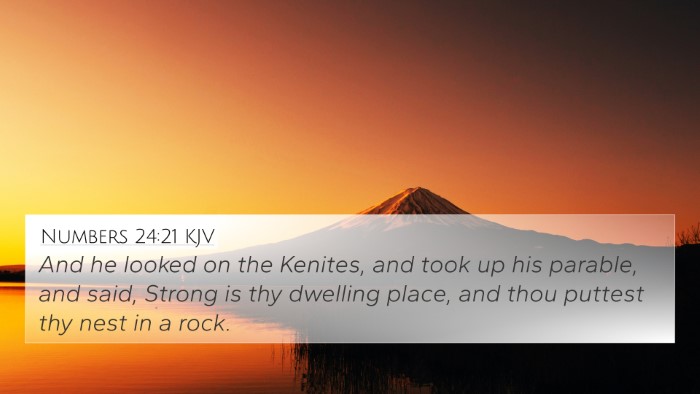Understanding Genesis 15:19
Genesis 15:19 is a part of God's covenant with Abraham, specifically discussing the land that God promised to give to Abraham's descendants. This verse reads:
"The Kenites, the Kenizzites, the Kadmonites."
This verse provides insight into the different nations and peoples that inhabited the Promised Land, emphasizing God’s plan for Israel in the broader context of Scripture. Here is a combined interpretation based on insights from public domain commentaries by Matthew Henry, Albert Barnes, and Adam Clarke.
Summary of Meaning
In this passage, God outlines the specific groups of people inhabiting the land, which illustrates His sovereignty over all nations and His ability to fulfill His promises. The mention of the Kenites, Kenizzites, and Kadmonites serves several purposes:
-
Historical Context:
These groups were significant in the ancient Near East, and their mention underscores the detailed knowledge God has of the land and its inhabitants.
-
Divine Assurance:
This declaration reassures Abraham that despite the presence of other nations, his descendants will inherit the land. It signifies that God's promises are not hindered by existing circumstances.
-
Covenantal Relationship:
The verse is part of a larger covenantal promise. God’s commitment to Abraham reinforces the theme of divine fidelity to His covenants throughout the Bible.
Cross-References and Thematic Connections
Genesis 15:19 connects with several other Biblical texts, highlighting the thematic continuity across Scripture. Here are some important cross-references:
- Exodus 3:8 - God's promise to bring Israel out of Egypt to a good and spacious land.
- Deuteronomy 7:1 - God will drive out nations greater and mightier than Israel.
- Joshua 12:8 - Lists the kings defeated by Israel in the Promised Land, including those mentioned in Genesis 15.
- Genesis 12:7 - God's initial promise to give the land to Abraham's descendants.
- Genesis 17:8 - The land of Canaan is given to Abraham and his offspring.
- Numbers 21:21-35 - Israel's conquest of Canaan and dispossession of its inhabitants.
- Isaiah 14:1 - God bringing back Jacob to repossess their land.
Comparative Bible Verse Analysis
By engaging in a comparative analysis of Genesis 15:19 with the aforementioned verses, we can discern the following thematic elements:
-
God’s Sovereignty:
Each referenced verse underscores His control over nations and land, emphasizing that no power can thwart His will.
-
Covenantal Promise:
The motif of God’s promise to Israel recurs throughout these passages, highlighting the faithfulness of God.
-
The Role of Conquest:
Various scriptures detail the struggle for the land, suggesting that divine promises may require effort and faith from the recipients.
Tools for Bible Cross-Referencing
To further explore the connections within Scripture, the following tools can enhance your cross-referencing studies:
-
Bible Concordance:
A comprehensive tool to locate words and phrases within the Bible, helping to identify related verses.
-
Bible Cross-Reference Guide:
Compiles various cross-referenced verses for thematic or contextual studies.
-
Bible Reference Resources:
Online platforms and books that provide extensive lists of cross-references for deeper insights.
Conclusion
Genesis 15:19 serves as an essential part of understanding God's covenant with Abraham and the unfolding plan for the nation of Israel. By recognizing its related passages and the overarching themes of covenant, sovereignty, and divine commitment, readers gain a holistic view of Scripture’s message. Engaging with cross-references enables scholars and laypersons alike to discern deeper meanings and connections between Bible verses, enriching one's study and understanding of God's Word.



